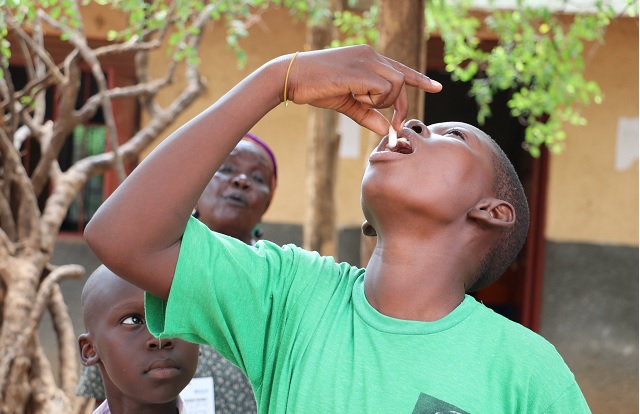
JUBA, SOUTH SUDAN | Xinhua | The World Health Organization (WHO) and South Sudan have teamed up to sustain the fight against neglected tropical diseases that pose a huge health threat in the country.
Undersecretary in the Ministry of Health Ader Macar Aciek said the country, with support from WHO and partners, has made efforts over the recent years to tackle the threat of neglected tropical diseases by providing drugs and bolstering preventive measures in a bid to accelerate progress towards ending these diseases.
“The journey to eliminating neglected tropical diseases is a long one and we are determined to finish the job by protecting everyone at risk so that they can live healthier lives,” Macar said in a joint statement issued in Juba, the capital of South Sudan, Tuesday evening.
Macar said they are working with partners to reach communities across the country and ensure that populations at risk receive treatment and protection from these diseases. According to WHO, 19 of the 20 neglected tropical diseases in South Sudan are endemic. More than 12 million people are at risk of infection from these diseases which can cause severe pain, disabilities and deformities among other devastating impacts.
Neglected tropical diseases are a set of 20 diseases or disease groups that occur predominantly in tropical and subtropical areas. They include lymphatic filariasis, more commonly known as elephantiasis, onchocerciasis or river blindness, schistosomiasis, or bilharzia, as well as human African trypanosomiasis, often called sleeping sickness, chronic ulcers and other skin infections.
Fabian Ndenzako, acting WHO representative in South Sudan, said they are committed to supporting the Ministry of Health in the efforts to address the threat of neglected tropical diseases in the country.
According to WHO, several of South Sudan’s counties have more than one endemic neglected tropical disease. Elephantiasis and river blindness are endemic in 34 counties, while bilharzia and intestinal worms are endemic in 46 counties, it said.
The UN health agency said 35 counties have endemicity of elephantiasis and intestinal worms, and 36 counties have Loa loa filariasis co-endemicity.
The recent mapping of leprosy endemicity status indicates that all regions in the country are endemic for leprosy.
Nearly 17 million people in South Sudan have received treatment for river blindness, elephantiasis, bilharzia, trachoma and soil-transmitted worms since 2021, according to WHO.
WHO said it has supported the Ministry of Health to develop and implement a Neglected Tropical Disease Master Plan 2023-2027 which aligns with the 2030 Neglected Tropical Diseases Global Roadmap for elimination. The roadmap aims, among other goals, to eliminate targeted diseases such as bilharzia, river blindness, elephantiasis, intestinal worms and trachoma by 2030. ■
 The Independent Uganda: You get the Truth we Pay the Price
The Independent Uganda: You get the Truth we Pay the Price





